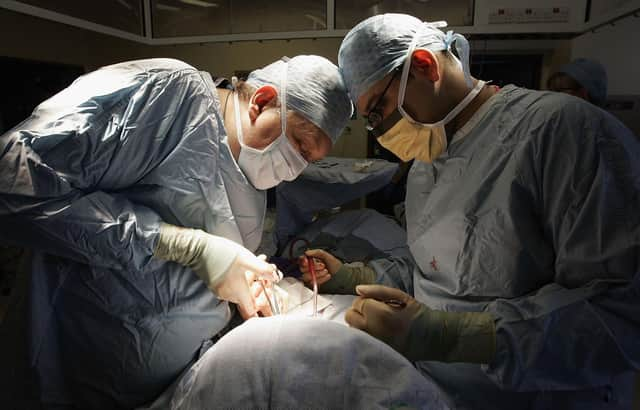Organ donation: As an intensive care consultant who benefited from transplants, I hope opt-out system leads to a shift in attitudes – Dr Radha Sundaram


As a consultant in intensive care – and the clinical lead for organ donation with NHS Blood and Transplant Scotland – this gave me hope that more people than ever before will receive the organ transplants they so desperately need, with many lives being saved.
It’s still too early to say how much of an impact the new legislation has had in terms of real data and if it has resulted in a tangible increase in deceased donations – but personally, I’m seeing more conversations about organ donation brought up by families during end-of-life situations in intensive care units.
Advertisement
Hide AdAdvertisement
Hide AdThe pandemic has undeniably had an impact on the number of donations and transplants but teams all over Scotland are working tirelessly to facilitate these lifesaving and enhancing operations wherever safely possible.
It is never easy when someone you love dies, but so many families have reported gaining great comfort from knowing that others have benefited from their loss and that they are honouring their loved ones wishes.
Had it not been for organ donation I wouldn’t be the doctor I am today: several years ago my eyesight began to fail me. Within months I was told that my sight would progressively decline if I did not receive corneal transplants. I couldn’t contemplate the thought of not being able to see – and while for me it wasn’t a life-or-death situation, it would have changed my life completely.
In 2015, thanks to the generosity of two extremely brave families, I received my sight-saving transplants – to this day I owe them so much; I can live my life as I had before, continue to drive, work in intensive care, help others and do the job I love so much.
I see the need for organ donation day in, day out – the statistics are sobering: every day three people in the UK die waiting for a lifesaving transplant. You are five times more likely to need a transplant than be able to donate, and only one per cent of people die in circumstances in which they are able to donate their organs.
A third of patients on the transplant waiting lists are from black, Asian and minority ethnic communities – but prior to the legislation coming into place, fewer than seven per cent of those on the organ donation register were from these communities, which is why now, more than ever, conversations about donation are so vital.
The inclusion of a section on faith in the organ donor register allows healthcare providers to have the appropriate information about what matters to the patient at end of life.
As this legislation moves out of its first year, I want to see organ donation become the norm, with everyone having discussions with their families and loved ones about their wishes, and a more positive attitude towards donation within society.
Advertisement
Hide AdAdvertisement
Hide AdI want to harness a sense of collaboration, forge new relationships and provide a deeper understanding of the views and needs of our ethnically diverse society to continue to save lives and give hope.
Dr Radha Sundaram, BMA Scotland
A message from the Editor:
Thank you for reading this article. We're more reliant on your support than ever as the shift in consumer habits brought about by coronavirus impacts our advertisers.
If you haven't already, please consider supporting our trusted, fact-checked journalism by taking out a digital subscription.
Comments
Want to join the conversation? Please or to comment on this article.
